Bobby Lennon’s Marbella United FC – Perfect For A COVID-19 Gap Year
A highly experienced soccer coach of the beautiful game, Bobby Lennon has played, coached, and managed football in the USA for more than 40 years. A USL Hall of Famer, Lennon has coached at every level. In 2015, Lennon launched a player development program in Spain for American youth players who wanted a year abroad to enhance their skills.
Bobby Lennon clearly loves the game of soccer — and helping develop players. The founder and former coach of the USL’s Richmond Kickers Lennon’s squad was the first American team to win “the double”, lifting both the trophy for the US Open Cup and the PDL National Championship. Fast forward to today, and Lennon’s successful elite player development program in Spain has a proven track record of connecting American players with European opportunities.
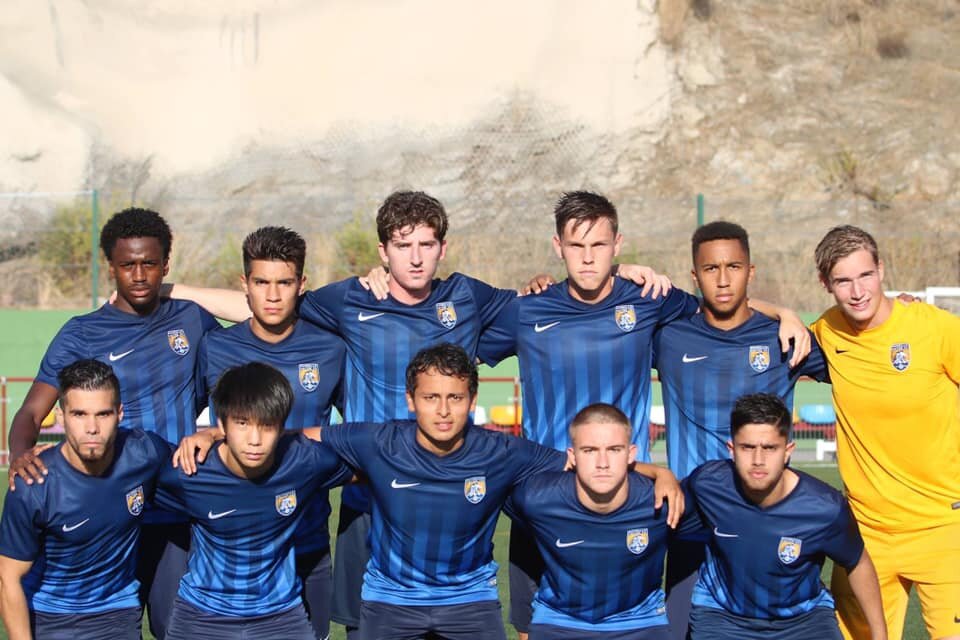
Lennon launched Marbella United F.C. (MUFC), the full-time high-level soccer academy that combines an American accredited education and a European football experience for our student-athletes in 2015. Currently, Lennon is recruiting players for Marbella United F.C.’s 2020/21 Season.
SoccerToday Interview with Bobby Lennon
Diane Scavuzzo: Who is the right player for your program? Who can take advantage of it the most?
Bobby Lennon: MUFC seeks serious players that are determined to develop to their highest potential and possibly to the professional or college soccer level. We search for players not only with the most ability but with great attitudes and the right mentality. Our players are a student of the game that eat, drink, breathe, sleep football. Our student-athletes must be mature enough to manage their time to balance academics and football. Almost every player in the United States needs significant development to meet the high stands of European football.
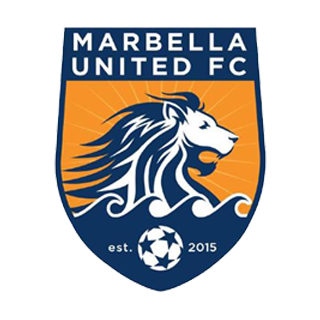
Diane Scavuzzo: Is it suitable for a gap year?
Bobby Lennon: Our program is excellent for serving as a gap year before a college soccer career — Although it is important to know that for players with the ambition to become professionals, they must give the process at least two years.
Our program offers a significant gap year because of the quality professional coaching, training, and game time with reserve and academy teams in pro clubs. Most first-year college players do not get enough playing time in their first year and our program provides an invaluable development year.
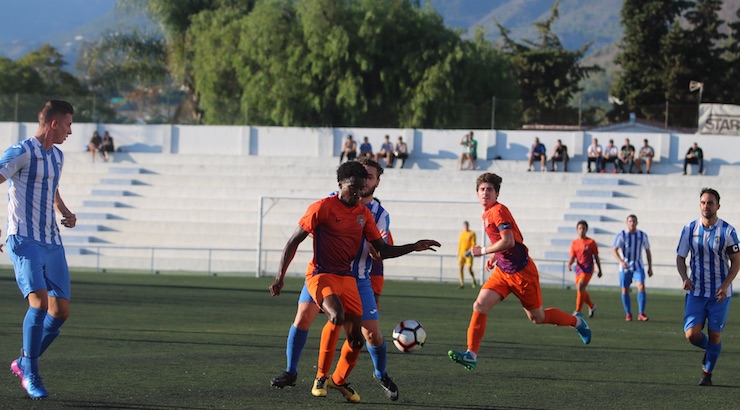
Diane Scavuzzo: Is taking a gap year in Europe safe now with the Coronavirus COVID-19 pandemic? You are focused on bringing talented youth soccer players to Portugal for this fall?
Bobby Lennon: Practices are resuming in Portugal among top-flight professional teams and will continue to expand to other levels as Portugal continues to open up.
Portugal was spared the death toll that many other countries experienced.
For now, practices must be in smaller groups and social distancing guidelines followed. The Portuguese Football Federation (FPF) (Federação Portuguesa de Futebol) is evolving its practices as the requirements from the local government change.
We, of course, will adhere to the guidelines mandated by the federation. These are small prices to pay for safety and to be able to get back on the pitch.
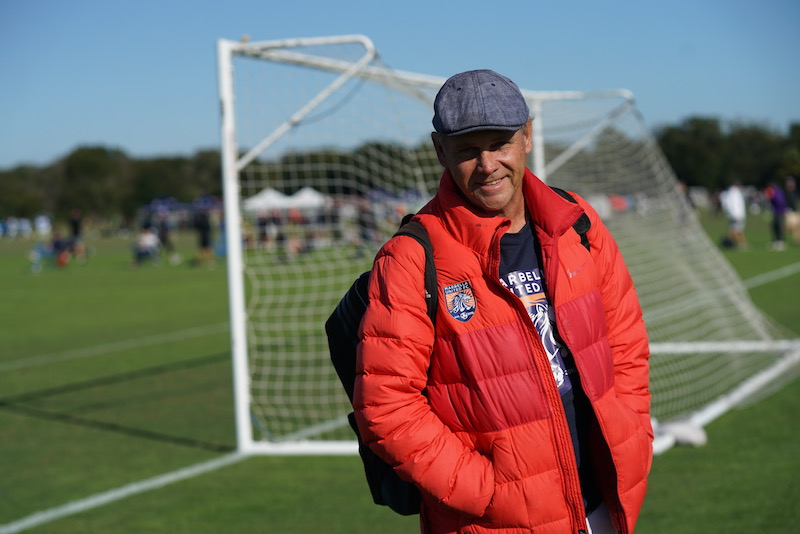
Diane Scavuzzo: What ages can attend your program? How long is the season?
Bobby Lennon: Because of COVID-19, we will begin both our programs for the 2020-21 season a little later than usual, starting September 1 and ending April 30. We now have two additional full-time residential academy locations, one in Lisbon, Portugal, and one in the planning stages in the USA.
In Portugal program, our ages are U15 to U23, and the USA program U14 to U23.
Diane Scavuzzo: You are planning the upcoming season in Portugal to begin in September — what is the basis for this decision?
Bobby Lennon: I wanted to explore new opportunities for our players.
Portugal is an excellent country for youth player development. We planned the last two months of this season to train and play in Lisbon. We had to come home early due to the Coronavirus COVID-19 pandemic.
This fall, our players will play professional academy teams, and our players can have additional training sessions with the local academy and club teams in the Lisbon area.
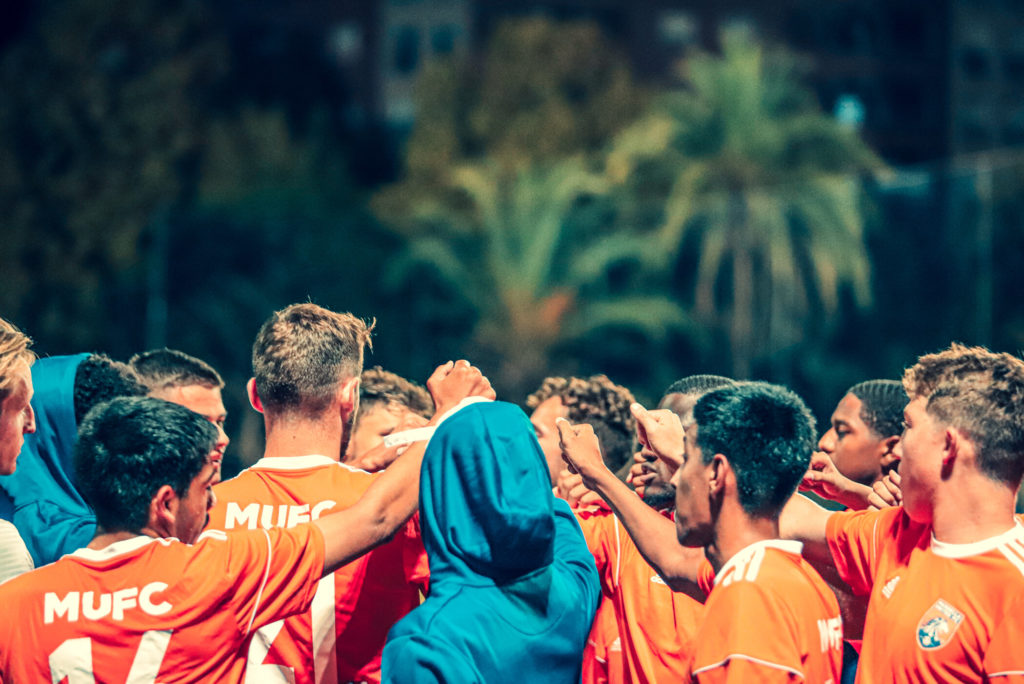
When our players reach a higher level, then they can train with their European peers.
Training and playing with Europeans is our next level of development because field awareness, vision, anticipation skills, and high-level technical skills are second nature to Portuguese players.
The level of Portuguese coaching and training is superior for player development.
Diane Scavuzzo: What makes your program different from the other opportunities to train abroad?
Bobby Lennon: I spend time traveling throughout the United States and different parts of the world, scouting players and teams at showcase tournaments and league play.
It is easy to identify what American players need to improve to close the gap with their European peers.
Our mission is to have talented American players benefit from the same style of training which has developed world-class professionals for more than a century. We focus on improving the individual player to help close the gap between American and European players. We teach and train practical skills that become automatic in-game situations and in all three-thirds of the field.
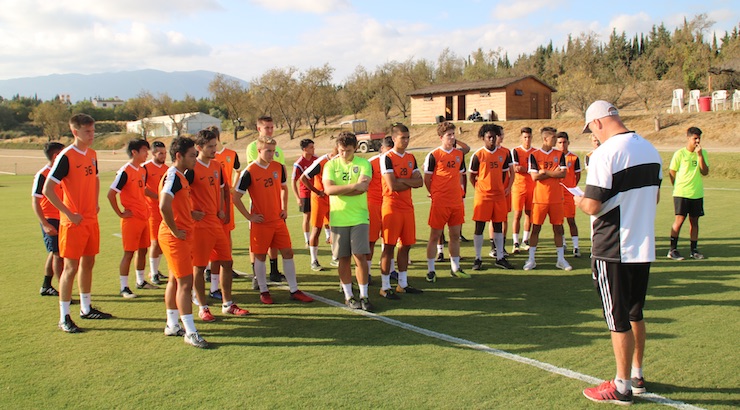
Our new technical and conditioning coach is Rodolfo Rodriquez, who was formerly on the coaching staff of the Boca Juniors in Argentina in the Diego Maradona era. I had witnessed how he made incredible improvements with my players when I owned and operated my USL franchise, the Palm Beach Pumas, from 2000-2008.
What sets our academy apart from other programs abroad is our curriculum that focuses on improving the individual player and not the team.
We also take great pride in developing player field awareness and vision. Our ultimate goal is to promote our players to a higher level of football in Europe or South America.
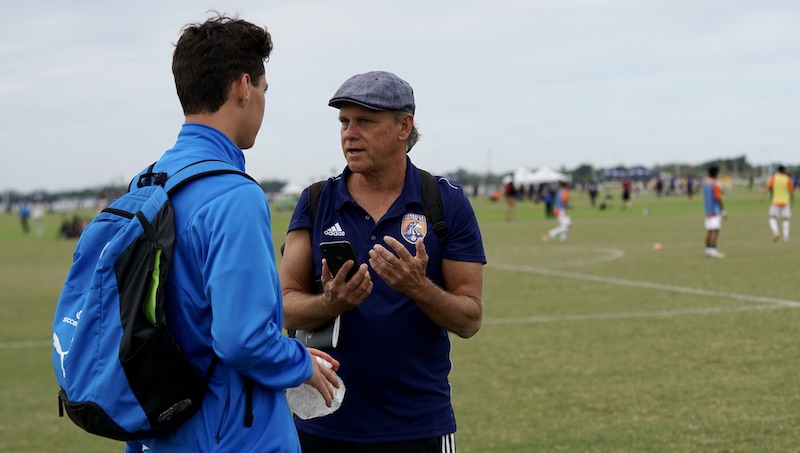
Rodriquez makes a high impact on individual player development, small group, and team play.
For American players to gain respect from European coaches and players, then they must have quality:
- Field awareness
- Vision
- Anticipation skills
- Decision-making before their first touch
- The purposeful movement away from the ball
- Angle-making
- Correct body position
- Early communication skills
These qualities must become second nature for American players to compete at a quality European level.
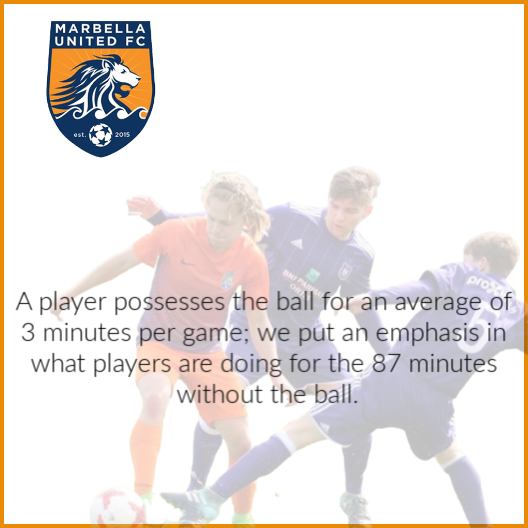
If we teach only tactical play, then our players never become self-thinkers and are not able to solve problems for themselves.
Our home field in Spain is a large grass field, and we play quality and attractive football on that type of pitch. There are many small turf fields in Spain where we play a large number of away games.
Small turf fields serve as a significant player development tool. It is much harder to play in small spaces against smart, skillful, and physical Spanish players. We gain great satisfaction when our players and teams can compete with quality football in these challenging environments.
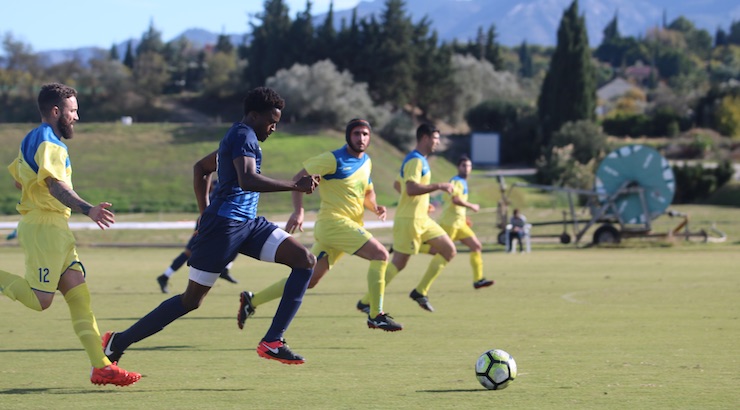
This serves as a measuring stick for our player and team development.
Our coaching staff is experienced professionals from Portugal, Belgium, England, and Argentina that teach and strategize a high-level European tactical football. We have coaches that have played and coached national teams, first teams in European, African, and Chinese first divisions, academies, while others have focused on player development in academies with smaller professional clubs. Their combined experience teaches our players high-level game intelligence.
Diane Scavuzzo: How does spending a year training abroad benefit a player?
Bobby Lennon: Training and playing games full-time with European coaches and opponents for an entire 8-month season while living the life of a young professional, gaining maturity is an excellent benefit for any serious student-athlete.
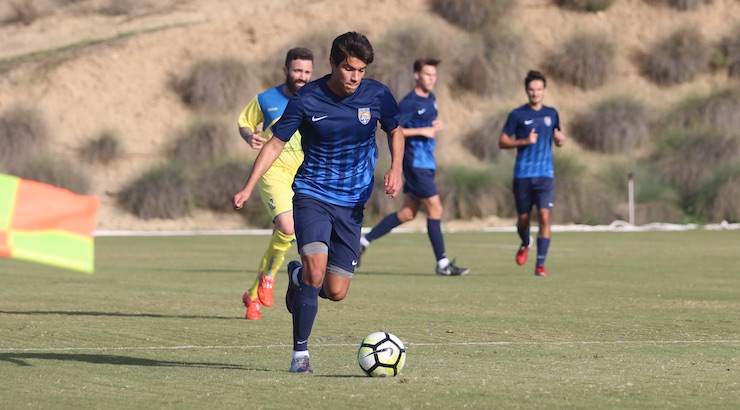
Read: AMERICANS TRAINING ABROAD – BOBBY LENNON ON DEVELOPING AMERICAN YOUTH PLAYERS IN SPAIN
Diane Scavuzzo: What are the best reasons to send your son to your program?
Bobby Lennon: Here are the ten best reasons.
- COLLEGE RESUME BOOSTER: Getting into college is becoming increasingly competitive. Studying abroad gives you a competitive edge in college applications.
- LEARN A NEW LANGUAGE: The best way to learn a new language is by immersing yourself in the culture and having a need to speak the language daily.
- GAIN APPRECIATION FOR A NEW CULTURE: Travel expands the hearts and minds of young people, which builds compassion and appreciation for people and experiences different from their own.
- BUILDS CONFIDENCE & SELF ESTEEM: Learning to navigate in a new country, coupled with exposure to enriching experiences, expands confidence in one’s self.
- MAKE NEW FRIENDS: Some of the best friendships are formed when young people learn to support and rely on each other in new situations.
- GAIN INDEPENDENCE: Having to figure things out for themselves with less parental oversight, enables players to make great strides in personal growth.
- MATURITY: A year abroad teaches a young person the value of responding to situations maturely and logically.
- RESPONSIBILITY: Preparing some of their meals, doing laundry, solving problems, etc. teach the importance of time management and prioritization.
- WORK ETHIC: At home, there can be lots of encouragement and help, being in a more independent setting teaches the importance of being self-driven to succeed.
- LIFE EXPERIENCE: Travel and exposure to new people and cultures bring with it many lessons in life that are not easily obtained in a more static environment.
Diane Scavuzzo: Are there opportunities to be ‘seen’ by scouts and possibly be recruited to play soccer professionally in a European league?
Bobby Lennon: Players must first impress our coaches because they have the contacts to coordinate tryouts in Europe. We do arrange for scouts to come to our pro-level games.
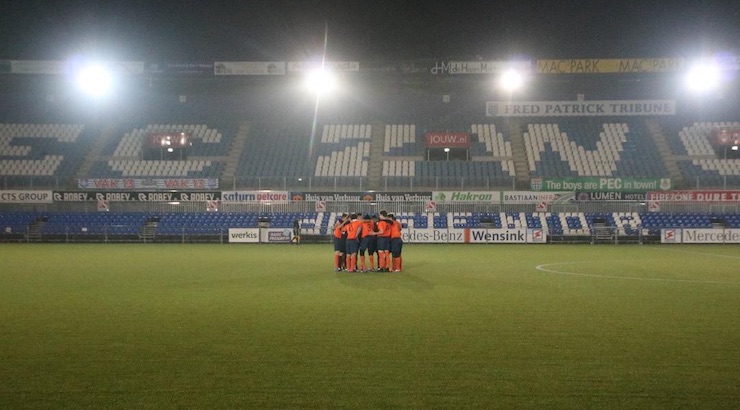
Diane Scavuzzo:: You are entering into your sixth year abroad what lessons have you learned?
Bobby Lennon: The first couple of years, I gave European coaches the freedom to teach American players their methodology. Our players were learning tactical football without being able to read the game on their own.
Our teams were playing good football, but we were not improving individual players.
All the aspects I have already mentioned; developing field awareness/vision, play away from the ball, as well as technical skills have to be a significant part of our curriculum and taught parallel with tactical football.
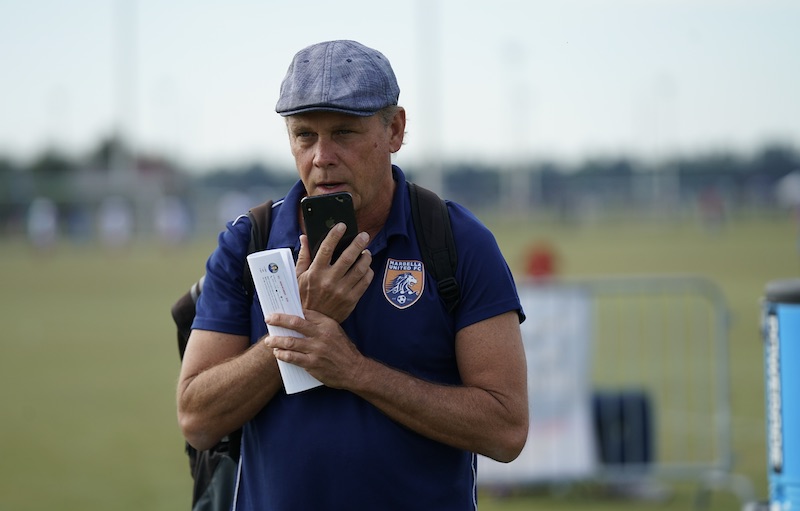
This vital project is close to my heart. I learned I needed to support to deliver a program that satisfies the development of ambitious American players.
I now have additional help behind the scenes, such as improved technology, operations, governance, communication, and finance. I have a group of partners that are experienced business executives that bring a higher level of professionalism to the program. With this support, I can spend more time monitoring the development of players and the football side of the business, which is my true love and passion.
Article updated on 5.26.20





